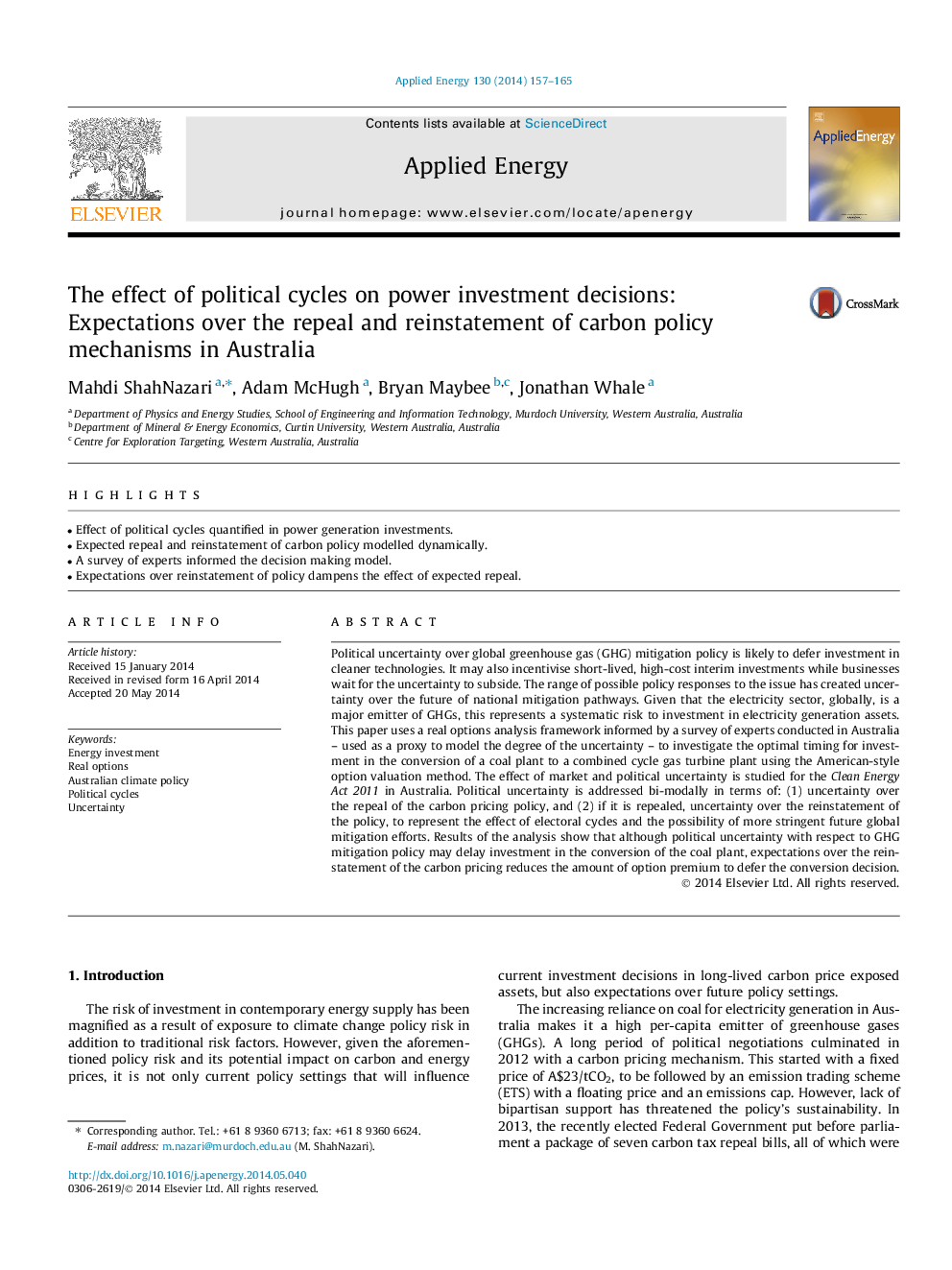| Article ID | Journal | Published Year | Pages | File Type |
|---|---|---|---|---|
| 6690001 | Applied Energy | 2014 | 9 Pages |
Abstract
Political uncertainty over global greenhouse gas (GHG) mitigation policy is likely to defer investment in cleaner technologies. It may also incentivise short-lived, high-cost interim investments while businesses wait for the uncertainty to subside. The range of possible policy responses to the issue has created uncertainty over the future of national mitigation pathways. Given that the electricity sector, globally, is a major emitter of GHGs, this represents a systematic risk to investment in electricity generation assets. This paper uses a real options analysis framework informed by a survey of experts conducted in Australia - used as a proxy to model the degree of the uncertainty - to investigate the optimal timing for investment in the conversion of a coal plant to a combined cycle gas turbine plant using the American-style option valuation method. The effect of market and political uncertainty is studied for the Clean Energy Act 2011 in Australia. Political uncertainty is addressed bi-modally in terms of: (1) uncertainty over the repeal of the carbon pricing policy, and (2) if it is repealed, uncertainty over the reinstatement of the policy, to represent the effect of electoral cycles and the possibility of more stringent future global mitigation efforts. Results of the analysis show that although political uncertainty with respect to GHG mitigation policy may delay investment in the conversion of the coal plant, expectations over the reinstatement of the carbon pricing reduces the amount of option premium to defer the conversion decision.
Related Topics
Physical Sciences and Engineering
Energy
Energy Engineering and Power Technology
Authors
Mahdi ShahNazari, Adam McHugh, Bryan Maybee, Jonathan Whale,
